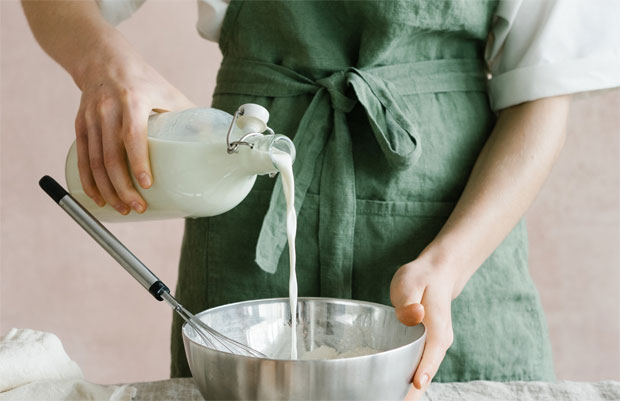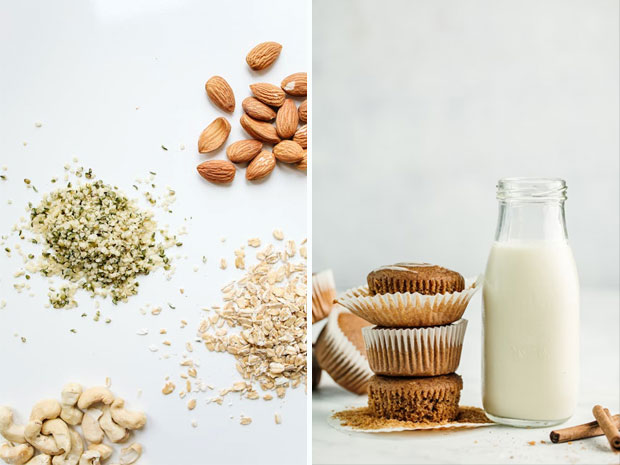How to Use Plant Milk to Bake without Dairy

How to Use Plant Milk to Bake without Dairy
A common misconception is that you need to use milk, butter, and eggs in baking to achieve the best results but that is not true. There are many different options that can be used to replace butter and eggs in sweet and savoury recipes, and plant milk is a viable substitute for milk in nearly all cases too. Whether you are vegan, have allergies or are simply trying to make healthier choices, plant milk is a great option for baking that comes with many health- and environmental benefits too.
- How to use plant milk in baking
There are lots of different plant milks available to choose from and, if you have a recipe to follow, you use the same amount as you would regular milk. Use the plant milk that you think tastes the best as that is likely to taste the best in the finished bake too. Oat milk, soy milk and almond milk are all great options for baking cakes, muffins and pancakes! These all have a similar texture to cow’s milk, while rice milk is more watery. For recipes that require a creamier consistency, you can use coconut milk too – this works especially well in recipes with tropical flavours.
For the best results, look for plant-based milk recipes online. These will be tried and tested and have the best plant milk choice for the particular recipe. You can arrange your plant-based dairy delivery online too, to ensure that you always have your favourite plant milk at home.

- Environmental benefits of choosing plant milks
Choosing a vegan diet is one of the best things that you can do for the planet. By choosing plant milk instead of cow’s milk, you are contributing to a more sustainable food system through your diet. Plant milk has a lower impact on the environment than dairy so using it is a great way to promote a healthier future for our planet, ourselves and our children.
- Health Benefits of Plant Milks
Going vegan or choosing a more plant-based diet is not only good for our planet, it’s also great for our own health. Plant milks are lower in saturated fat and cholesterol which makes them a more heart-healthy alternative to cow’s milk. They are also lower in calories and contain lots of essential nutrients including calcium, vitamin D and vitamin B12 which are important for maintaining bone health and overall well-being. Of course, they are also naturally lactose-free so great for anyone with a lactose intolerance.
Conclusion
Swapping to plant milk for your baking recipes is easy and tasty too! You can use plant milk in all kinds of recipes and enjoy brilliant results while also enjoying the environmental- and health benefits that these milks have to offer.
Collaboration.




